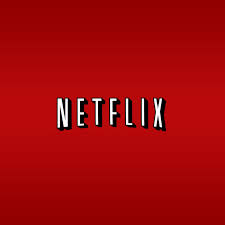 With the possible exceptions of Yahoo! and HP, no company has struggled more in the last few months than Netflix. While it’s been a few weeks since the company backed off of its decision to split its business into two parts, its stock continues to drop amid reports that it lost more than 800,000 customers last quarter.
With the possible exceptions of Yahoo! and HP, no company has struggled more in the last few months than Netflix. While it’s been a few weeks since the company backed off of its decision to split its business into two parts, its stock continues to drop amid reports that it lost more than 800,000 customers last quarter.
Convergence
Netflix’s recent actions make little sense—and Hastings was right in ultimately reversing course, although his (non)apology to customers left a bit to be desired. In The Age of the Platform, I discuss how platforms today are functions of many things, not the least of which is the extent to which they integrate their features or, as I call them throughout the book, their planks. The more powerful and integrated the planks, the more powerful the platform—and, increasingly, the company.
Amazon, Apple, Facebook, and Google (aka, The Gang of Four) are perhaps the best examples of companies that have built robust platforms, planks, and ecosystems. Is it any wonder that they are so valuable, so successful?
Customers these days above all value three things: ease, convenience, and convergence. iTunes is not the cheapest (legal) destination for downloading music, but I challenge you to find an easier, more user-friendly, and more integrated service.
Customers these days above all value three things: ease, convenience, and convergence.
Contrast that with Netflix proposed move to decision to effectively chopped its business into two, creating multiple queues and bills in the process. It would violated these core precepts. A Qwickster-Netflix split would have represented the antithesis of one-stop shopping. Hence the strong reaction against it.
In the Age of the Platform, new technologies can and should make things easier for customers, not more difficult (read: Qwikster). While I’ve not yet seen Amazon’s Fire, Bezos’ tabled will not require users to create new or separate Amazon accounts. Customers’ existing ones will work quite nicely after they sign in.
I’m hardly the only person to notice the trend towards increased convergence and integration. In her excellent book The 24-Hour Customer, Adrian Ott writes about the time-value tradeoff that most consumers implicitly or explicitly make these days. Although few Americans switch banks every year because it’s such a hassle, how hard would it be to start watching movies and TV shows on Amazon, Apple, or Google–especially as they continue to add content? Don’t think for a moment that these companies are not building tools to facilitate the transition from Netflix to their services.
Looking Forward
Hastings’ body of work is impressive and most remain convinced that he can right his company’s shift before Amazon, Apple, and Google up the stakes. As Ramsey Poston writes, “The lesson here is simple, hearing your customers is not good enough. Companies need to listen, understand and adjust.”
No argument here.
I’d only add that you wouldn’t have to listen to their complaints in the first place if you integrated your products and services more—not less. The Age of the Platform demands it.
Article first published as “Explaining the Troubles of Netflix in the Age of the Platform” on Technorati.

 PHIL SIMON
PHIL SIMON


0 Comments